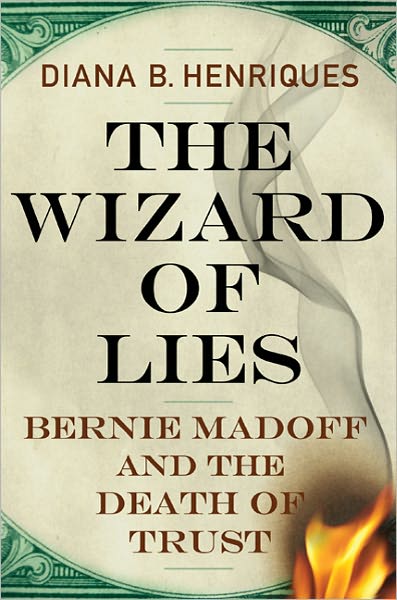Enduring Ponzi
Why did Madoff’s Ponzi scheme last so long?
- He didn’t take that much from it.? If the gross exposure was $60 billion, he took only 1/2% of it — $300 million.
- The growth rate was high enough to attract investors but slow enough to not exhaust cash rapidly.
- The SEC was clueless, with little expertise in quantitative investing, and little basic auditing knowledge where one traces every transaction back to the source, which would have revealed Madoff in an instant.? There were no assets in the accounts.
- He had a reputable business that produced significant profits, and was viewed by many as an industry leader.? Many Europeans, among others, thought he was front-running, and Madoff implicitly encouraged that idea while explicitly denying it.? The idea of “front-running” was a honey pot to distract regulators from the idea that a Ponzi scheme was going on.
- The marketing club.? You are the lucky one who is invited to partake of the gravy train.? Don’t question, just enjoy, and refer friends, maybe we will consider them.
- Feeder funds that were looking for looking for a high-ish return and a low standard deviation found Madoff irresistible.
- “Pus luck.”? There were many times where the scheme almost died, but new cash flows bailed them out.? The term, “pus luck” was unique to my block where I grew up in Brookfield, Wisconsin, and described a situation of undeserved luck.? A brother of my friend, and a friend of my brother always seemed to get the lucky break at unusual moments.? We called it “pus luck,” perhaps in an effort to denigrate his skill in unlikely situations.
- Madoff did not encourage a marketing frenzy.? He tried to keep it low-key.? That kept it below the radar, and allowed it to be marketed to a wide number of people who would not fall for a hard sale.
And so it was for Madoff, skating through unlikely situations where others would have easily died, until it got too big, as all Ponzis do.
We know when it ended, but have no idea on when it started, ’60s, ’70s, ’80s, ’90s…? We really don’t know.?? Madoff has revealed a lot, but he has never given a date earlier than 1992.? His associate, DiPascali, suggested it may have started in the late ’80s.? There is some evidence that it may have gone all the way back to the ’60s.
I find DiPascali’s words to be more reasonable than Madoff’s.? The late ’80s were more desperate than the early ’90s.? If you could survive ’87 and ’89, you could likely survive ’92.
Recoveries?
When the Ponzi was revealed, few thought there would be any significant recoveries. But now, net losers from the Madoff Ponzi may get back over 50% of their money.? Why?
- The Picower family gave in, and released their profits from the Madoff scheme.
- Many large financial companies played small roles in the scheme, and they will all probably pay something to make the lawsuits go away.
- Some net losers were involved in money laundering and are unlikely to pop their heads above water to make a claim on their ill-gotten funds.? More for the rest.
In one sense, the slowness of the Madoff Ponzi allowed for a less wasteful class of investors to be bilked.? Including Madoff, these were not the sorts of people that were big spenders as a fraction of their income.? Many investors were buy and hold with Bernie, and indeed, he encouraged that.
So the endgame may not be as bad as expected.? Many will get a large portion of their net investment back.? There will still be regrets, but they will be much reduced.? Good for them.


